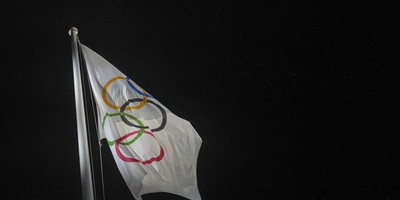That is the legal and medical question of the hour.
Should the good people coming back to the USA after helping fight Ebola in West Africa be forced to undergo a 21-day quarantine?
The defense department obviously thinks so.
It has announced that all U.S. military personnel returning from West Africa will be required to undergo "controlled monitoring" for 21 days to make sure they aren't carrying the deadly virus.
The men and women serving in the military is a separate issue. They didn't choose to go to the Ebola hot zone.
They were ordered to go, and when they return stateside they'll be ordered to undergo what is essentially a quarantine. It's called the military.
But the doctors, nurses and other health workers who volunteered to go to West Africa are another matter.
So far, depending on what state they live in and what their state health officials require, they may or may not be forced to comply with a 21-day quarantine when they return.
The legalities of mandatory quarantines for civilians are vague and still must be sorted out.
Kaci Hickox, the nurse who was forced by the state of New Jersey to stay in a tent while being tested for Ebola, looks like she's willing to become a test case.
>She's threatened to sue Jersey Gov. Chris Christie. And now she's back at her home in Maine and refusing to abide by health officials there to comply with a "voluntary" quarantine.
Recommended
Saying she is in perfect health and showing no symptoms of Ebola, Hickox insists she's not a risk to the public. She told NBC's "Today" show she believed that the quarantine policy was "not scientifically nor constitutionally just."
The quarantine question shouldn't have to become a constitutional issue. And there's no reason for state or federal governments to be put in the position of having to force an American citizen to undergo a quarantine.
The solution is simple. Before anyone goes to West Africa, they should fill out and sign an application form.
If they are unwilling to submit to a 21-day quarantine when they come back, they should be told by their employers, their relief agency or their church group that they cannot go.
>Period. It's nothing new or strange for us to have rules like quarantines that protect the public from infectious diseases.
For example, I have type O negative blood, the kind everyone wants.
But I'm not permitted to donate blood, which I'd like to do, simply because I was in Europe in the 1980s when mad cow disease was a problem there.
That's all it takes to be disqualified. When you apply to give blood, if you answer "yes" to the question "Were you in Europe for more than six weeks in the '80s" you can never donate a drop of blood in the United States.
Some health experts have argued that a strict quarantine requirement would hurt the war against Ebola because it would dissuade many volunteers from going to West Africa.
That's no doubt true. But any health worker who's not willing to undergo a quarantine isn't a real hero and isn't looking at the big picture.
If they're willing to do good works in Africa, and God bless them for that, they should be willing to do it the right way.
And that means paying the full cost of doing good overseas by ensuring the safety of their families, friends and neighbors back home.
America is an incredibly generous country. It has millions of goodhearted heroes who would volunteer to help the sick and dying in West Africa.
But they can do good without endangering the rest of us.

























Join the conversation as a VIP Member